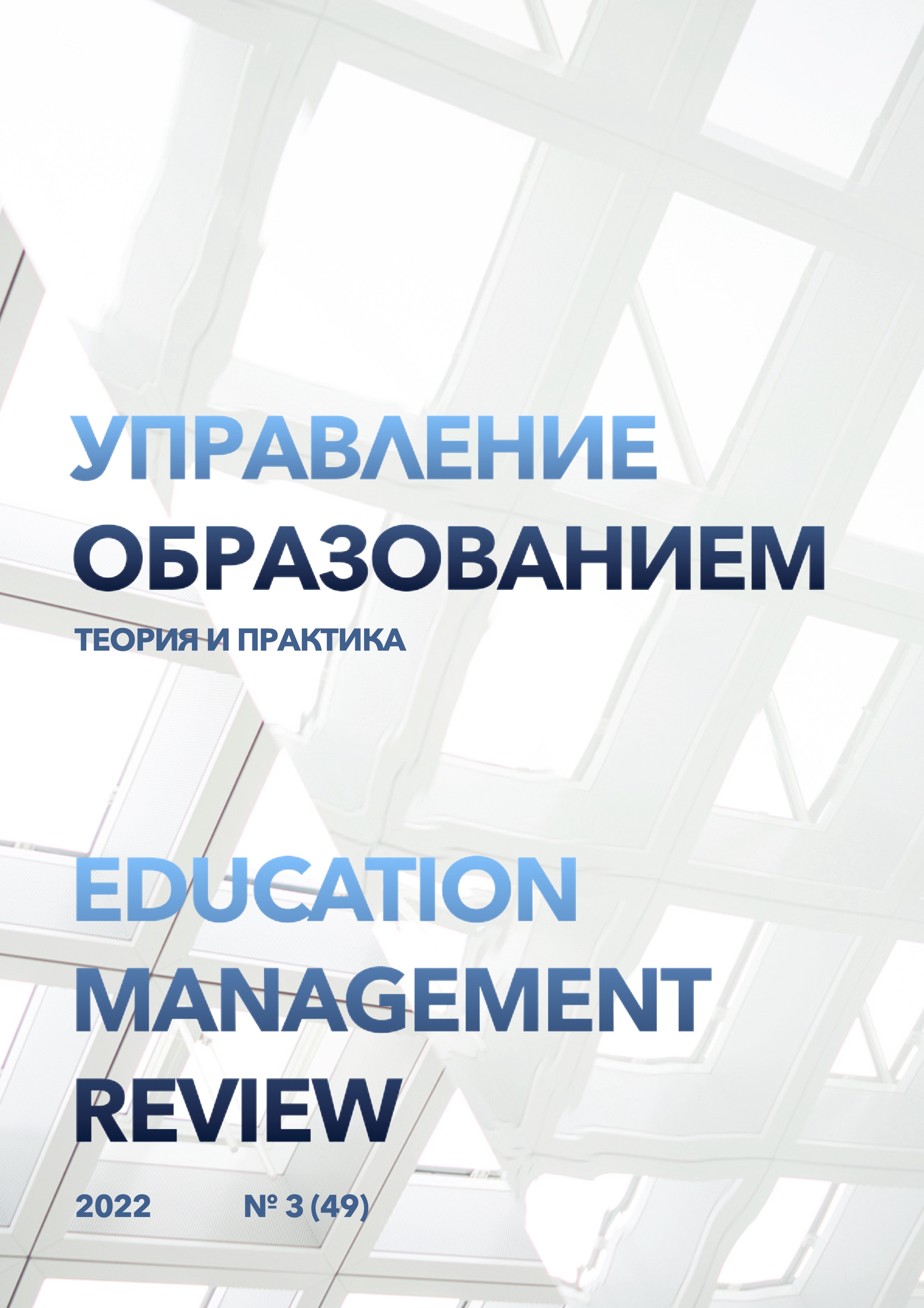Informatization of professional education processes for the formation of a certification system in a higher educational institution
DOI:
https://doi.org/10.25726/v7762-0292-9334-jKeywords:
higher education, research, results, educational processAbstract
The modern period of Russia's development is characterized by the search for ways to consistently reform all spheres of society's governance, among which the education system occupies a special place in terms of its strategic importance. The quality of modern training of highly qualified specialists in the higher education system depends on many factors: on the availability of higher education standards approved by the Ministry of Education and Science of Russia, on the fullness of educational programs and curricula, the content of educational and work programs of disciplines taught, on the qualifications of scientific and pedagogical workers who provide teaching of disciplines, educational and methodological support, from the availability of modern equipment, the use of modern innovative approaches in teaching disciplines by scientific and pedagogical staff of institutions of higher education, from a competently set schedule of training sessions in relation to a higher education applicant, etc. Thus, in order to achieve high and high-quality results in the provision of educational services by higher education institutions, a number of tasks arise that require constant updating: methodological and logistical support of the educational process; qualitative composition of scientific and pedagogical staff; monitoring and periodic updating of educational programs; annual assessment of applicants for higher education, scientific, pedagogical and pedagogical staff of higher education institutions and regular publication of the results of such assessments on the official website of the institution of higher education.
References
Белл Д. Грядущее постиндустриальное общество. М.: Academia, 2004. 944 с.
Видт И.Е. Образование как феномен культуры: монография. Тюмень: Печатник, 2006. 199 с.
Дмитриевская Н.А. Массовые открытые онлайн курсы как инструмент маркетинговых коммуникаций вуза // Статистика и Экономика. 2015. № 4. С. 29-37.
Днепровская Н.В. Оценка готовности российского высшего образования к цифровой экономике // Статистика и экономика. 2018. Т. 15. № 4. С. 16-28.
Домакур О.В. Индекс развития постиндустриального общества // Вестник БГУ. Сер. 3. 2011. № 2. С. 53-56.
Домакур О.В. Постиндустриальное общество: система отношений, закономерности становления и развития: дис. ... канд. эконом. наук: 08.00.01. Минск, 2014. 143 с.
Елисеева Е.В., Прохода И.А., Голуб Л.Н., Медведева С.А., Савин А.В. Systems of socialization and education of students at the university of the digital age / Complex Systems: Innovation and Sustainability in the Digital Age. Сер. " Studies in Systems, Decision and Control" Switzerland, 2021. С. 245-257
Индикаторы цифровой экономики: 2019: статистический сборник / Г.И. Абдрахманова, К.О. Вишневский, Л.М. Гохберг и др. М.: НИУ ВШЭ, 2019. 248 с.
Колоницкая О.Л. Гуманитарная среда - один из способов решения проблем высшего профессионального образования // Молодой ученый. 2012. № 5(40). С. 431-435.
Культурная глобализация и задачи современного образования. http://storage.mstuca.ru/bitstream/
Муслумова Т.В. «Общество знания» и проблемы развития образования // Вестник Шадринского государственного педагогического института. 2013. № 3(19). С. 1-6.
Новиков А.М. Постиндустриальное образование. М.: Изд-во «Эгвест», 2008. 136 с.
Погонышева Д.А., Серая, Г.В., Тасоева Е.В., Савин А.В. Цифровые технологии в управлении персоналом АПК / Сборник научных трудов Международной научно-технической конференции «Проблемы энергообеспечения, автоматизации, информатизации и природопользования в АПК». Брянск, 2021. С. 164-168.
Сизова Ю.С. Гуманитаризация высшего образования как направление его гуманизации // Материалы VIII Междунар. науч. конф. (г. Самара, март 2016 г.). Самара: ООО «Издательство АСГАРД», 2016. С. 261-266.
Сорокина М.М. Роль и место информационных технологий на лекционных занятиях по алгебре в вузе // Материалы международной научной конференции «66-е Герценовские чтения» по проблемам обучения математике в школе и вузе. Санкт-Петербург, 2013. С. 178-179.
Сорокина М.М. Роль сетевых технологий в обучении математике студентов заочной формы обучения // Материалы международной научной конференции «67-е Герценовские чтения» по проблемам обучения математике в школе и вузе. Санкт-Петербург, 2014. С. 155-156.
Строков А.А. Цифровая культура и ценности российского образования: автореф. дис. ... канд. филос. наук: 09.00.13. Н. Новгород, 2021. 21 с.
Тоффлер Э. Третья волна. М.: ООО «Фирма «Издательство ACT», 2004. 345 с.
Чернецов П.И. Образование подрастающего поколения в условиях постиндустриального общества как социально-педагогическая проблема // Вестник Челябинского государственного университета. Философия. Социология. Культурология. 2012. № 19(273). Вып. 26. С. 137-140.




